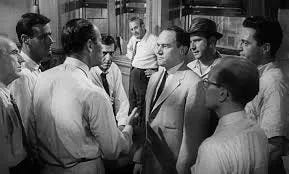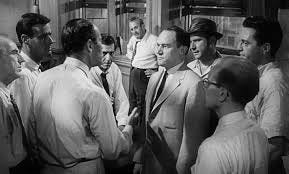Here’s a not-so-fun fact! If you are convicted of first degree murder in the state of Missouri and the jury can’t decide whether to kill you or not, the trial judge in your case is allowed to make that decision for them.
That seems bad, no? Seems like if the jury can’t decide, it’s probably better to err on the side of “not killing anyone.” Especially in Missouri, where they have a tendency to get things pretty darn wrong when it comes to determining guilt and innocence — not to mention a tendency to keep people in prison even after it’s been determined that they are innocent, as happened for a long time with Kevin Strickland and Lamar Johnson.
THESE GUYS!
Shockingly enough, someone who agrees with me on this point is Republican state Rep. Bishop Davidson. Davidson has introduced a bill that would bar judges from sentencing people to the death penalty in cases of a hung jury. Who would have thought!
Via Missourinet:
“I think Thomas Jefferson said it’s better for 1,000 guilty men to go free than one innocent man to be imprisoned. I believe we have very high standards, very high burdens of proof and I’m supportive of that judicial process because I think it dots its I’s and crosses its T’s. And when we subvert that system, whereas in every other circumstance, a hung jury would be a mistrial, but in this circumstance, for some reason, we’re allowing the death penalty to go through. The reason I did it is because I’m not comfortable killing a person who, by a jury of their peers, was not unanimously decided that that person deserved that penalty,” Davidson told Missourinet.
OK, that was not actually Thomas Jefferson — I think the original can be attributed to the Torah scholar Maimonides, sometime in the 12th century, but no one can really be sure because a lot of people said it — but the point stands. He’s incorrect in saying that we have very high burdens of proof when it comes to guilt, but he’s on the right track and may even get there someday.
Davidson said he has not decided where he stands on the death penalty, but he said he would rather err on the side of caution when it comes to a person’s life. He went on to say that he does not believe the death penalty is foundationally wrong.
“When it comes to the death penalty, it’s so final. Once you do it, you can’t walk it back. I mean, if there was anyone who didn’t quite know and was like, ‘Yeah, I’m confident you did it but I’m not confident enough that you did it that I should be killing you,’ then I didn’t think that we should be taking that upon ourselves to administer that death penalty,” said Davidson.
Again very close. Not so sure juries should be finding people guilty if they don’t “quite know,” but still: Getting there!
In a new interview published today by Missourinet, he said it was the unanimity of juries that gave him confidence in the system, because a lot of people had to come to the same conclusion, and he thinks that’s preferable to just one person (the judge) making that decision.
Perhaps someone can hep him to the story of Missouri resident Ryan Ferguson who in 2005 was convicted of killing sports writer Kent Heitholt in 2001, based on the word of another guy who said he was pretty sure that he and Ferguson killed Heitholt together that night but had no actual memory of the incident. Not that this stopped him from going into the gory details of what he thought could have happened on the stand. (There’s a “Dateline”!)
People think they are good at determining guilt. We’re all very good at figuring out who did it on “Law & Order,” but that’s largely because it’s practically always the person you recognize from somewhere else. On “Dateline,” it’s whoever they’re filming from the neck up for the first half of the show so you don’t see them in their prison outfit. In reality, it’s a lot more complicated than that, which is why studies estimate that anywhere from 2 to 10 percent of currently incarcerated people are likely innocent.
We should appreciate that Davidson says he doesn’t know where he stands on the death penalty. In fact, we should appreciate it whenever anyone says they aren’t sure about anything, because that means they’re willing to learn (which, let’s be honest, we don’t get from Republicans a whole lot). I also understand that the death penalty is something so deeply ingrained in American culture that people have a hard time letting go of it.
But, I truly believe that almost anyone who is willing to look into the death penalty and how it is administered in this country is going to end up being really, really against the death penalty. That’s why, after learning about Richard Glossip’s case, Republicans in Oklahoma are starting to rethink their support for the death penalty entirely. Once you see it, you can’t unsee it.
PREVIOUSLY:
























































![Key Metrics for Social Media Marketing [Infographic] Key Metrics for Social Media Marketing [Infographic]](https://www.socialmediatoday.com/imgproxy/nP1lliSbrTbUmhFV6RdAz9qJZFvsstq3IG6orLUMMls/g:ce/rs:fit:770:435/bG9jYWw6Ly8vZGl2ZWltYWdlL3NvY2lhbF9tZWRpYV9yb2lfaW5vZ3JhcGhpYzIucG5n.webp)
























